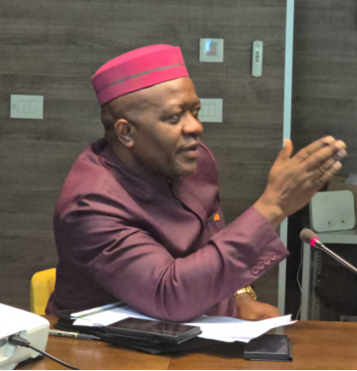Liberia, a nation with a history marked by economic turbulence, is exhibiting promising signs of recovery and stability. The country’s Finance and Development Planning Minister, Augustine Kpehe Ngafuan, has articulated a narrative of progress, emphasizing tangible improvements in the lives of Liberian citizens. The availability of essential commodities, particularly fuel and rice, has stabilized significantly, alleviating the pressures that once plagued households. Furthermore, the government has prioritized consistent salary payments for civil servants, a critical factor in fostering economic stability and boosting public morale. These positive developments underscore a shift away from the hardships that once characterized Liberia’s economic landscape.
Minister Ngafuan’s assessment paints a picture of a nation moving towards normalcy. He contrasts the current situation with a past marred by shortages and anxieties. The once-familiar scenes of long queues at gas stations and desperate mothers struggling to secure rice for their families are fading into memory. The consistent supply of gasoline for nearly two years, coupled with declining prices, signifies a notable achievement in stabilizing a crucial commodity market. Similarly, the relative stability of rice prices, the nation’s staple food, has brought much-needed relief to households grappling with economic pressures. These improvements signify a concerted effort by the government to address fundamental economic challenges and ensure access to essential goods.
The regularization of civil servants’ salaries represents another crucial step towards economic stability. Minister Ngafuan highlighted the timely disbursement of salaries, emphasizing that July’s payments were processed before the 18th of the month. While acknowledging occasional technical glitches with bank transactions, he stressed the overall improvement in the salary payment system. The fact that even minor delays now elicit public concern, according to the Minister, is a testament to the raised expectations and the stark contrast with a past where months-long salary arrears were a harsh reality. This shift reflects a growing confidence in the government’s commitment to its employees and its ability to manage public finances effectively.
Beyond addressing immediate needs, the Liberian government is investing in long-term solutions to enhance economic efficiency and transparency. A key initiative is the digitalization of the economy, undertaken in collaboration with the Central Bank of Liberia. This initiative aims to modernize financial transactions and streamline processes, particularly in the disbursement of salaries. The implementation of a national payment switch is expected to reduce delays and improve the overall efficiency of government operations. This move towards digitalization signals a forward-looking approach to economic management and a commitment to leveraging technology for the benefit of the nation.
While acknowledging the persistent challenges, Minister Ngafuan expressed optimism about Liberia’s economic trajectory. He reaffirmed the government’s unwavering commitment to maintaining economic stability and improving service delivery. This dedication to progress suggests a long-term vision for Liberia’s economic future, one characterized by sustained growth and improved living standards for its citizens. The Minister’s pronouncements underscore the government’s recognition that the current improvements are not an end in themselves but a foundation for further development and prosperity.
In essence, Liberia appears to be turning a corner in its economic recovery. The government’s focus on stabilizing essential commodity markets, ensuring timely salary payments, and modernizing financial systems paints a hopeful picture for the nation’s future. While challenges undoubtedly remain, the progress achieved thus far signifies a positive shift and provides a basis for continued growth and development, ultimately aiming to improve the lives of all Liberians. The emphasis on stability, efficiency, and improved service delivery underscores a commitment to building a more resilient and prosperous economy for the future.


